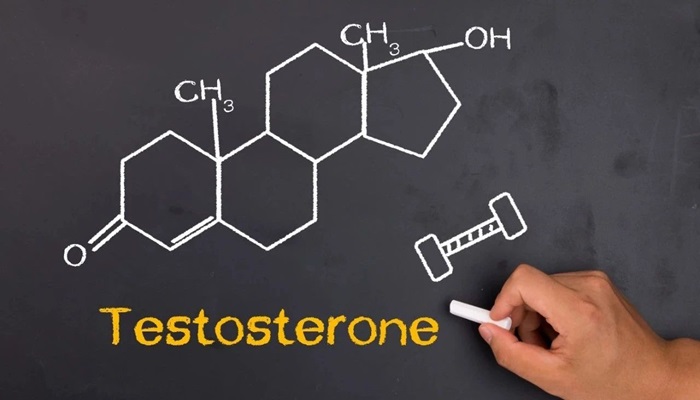In recent years, there has been a noticeable rise in the number of women seeking testosterone therapy, driven in part by social media influencers and increased access to telemedicine. The surge in demand for this hormone therapy has prompted doctors to question whether this trend is based on solid medical evidence or merely popularized by influencers who claim testosterone is a cure-all.
Testosterone is primarily known as a male hormone but also plays an important role in women’s health. It is involved in regulating sex drive, muscle mass, and energy levels. Typically, testosterone levels in women are much lower than in men, and they naturally decrease with age, particularly in the years leading up to menopause.
Between 2013 and 2023, the number of testosterone prescriptions in the United States rose nearly 50%, according to data from IQVIA, a health technology company. What’s particularly notable is that a significant portion of these prescriptions are for women, particularly those in their 40s and 50s.
Why Are Women Turning to Testosterone Therapy?
Dr. Rebecca Dunsmoor-Su, a leading expert on menopause and the chief medical officer at Gennev, a telemedicine service for menopause patients, believes that this rise in interest among women is akin to an “epidemic.” Many women, particularly those in their perimenopausal years, are seeking testosterone as a solution to a variety of symptoms, such as low energy, decreased libido, and mood swings.
“The promise is that testosterone will fix everything — from low sex drive to energy and even weight loss,” Dr. Dunsmoor-Su said. “But the reality is that many of these claims are not supported by solid medical evidence.”
Dr. Amy Voedisch, an OB-GYN at Stanford Medicine, has also seen a sharp increase in women asking about testosterone therapy. Often, these women are in their 40s or early 50s and are experiencing the typical symptoms of perimenopause, such as irregular periods, insomnia, and hair loss. In addition to these, many report a decrease in libido, which they believe could be alleviated with testosterone.
However, Dr. Voedisch notes that the rise in requests for testosterone therapy has become more prominent only in the last few years. In the past, women rarely mentioned testosterone during their medical visits. Now, however, many women bring it up after hearing about it on podcasts or from social media influencers.
What Does Testosterone Therapy Do?
Testosterone therapy can be administered in various forms, including gels, pills, and even pellets implanted under the skin. These methods are typically prescribed for women who have low libido, especially when other causes, such as medical or psychological issues, have been ruled out.
However, not all experts agree that testosterone therapy is the solution for every woman. The U.S. Food and Drug Administration (FDA) has not approved testosterone therapy for women, although it can be prescribed off-label for women with low libido.
Dr. Jan Shifren, director of the Midlife Women’s Health Center at Massachusetts General Hospital, points out that the benefits of testosterone for women with low libido are not as impressive as many might expect. In clinical trials, women receiving testosterone therapy showed only a slight improvement in sexual satisfaction compared to those receiving a placebo.
Dr. Shifren urges women to explore other potential causes of low libido before seeking testosterone therapy. Common causes include relationship issues, depression, anxiety, and medical conditions like diabetes or high blood pressure.
The Growing Influence of Social Media
One of the most significant drivers of this trend is the power of social media. Influencers on platforms like Instagram, TikTok, and Reddit have sparked widespread interest in testosterone therapy. These individuals often claim that testosterone can solve a variety of health issues, from boosting energy to restoring libido.
Marcella Hill, a 44-year-old woman from Vineyard, Utah, turned to testosterone therapy after experiencing symptoms like depression, body aches, and low sex drive. Initially, she tried a testosterone gel, but found it ineffective. After switching to testosterone pellet therapy, she began to notice significant improvements.
Her experience led her to share her story on social media, where it gained widespread attention. Her TikTok video, in which she talks about her positive experience with testosterone, received 9 million views. As a result, Hill was contacted by countless women who shared similar symptoms and were curious about the potential benefits of testosterone therapy.
Although Hill is not paid for promoting testosterone, she has worked with telehealth companies on advertisements encouraging women to seek regular checkups. She continues to share her experience with her followers, helping to raise awareness of testosterone therapy as a potential solution.
Is Testosterone Therapy Safe for Women?
Testosterone therapy is generally considered safe for women when prescribed by a doctor and carefully monitored. However, like any medication, it can come with side effects. When prescribed for men, testosterone doses can range from 50 to 100 mg per day. For women, the recommended dose is much lower — around 5 mg per day, about 10% of the male dose.
Side effects for women can include acne, excessive body hair, and changes in body odor. In some cases, these side effects can be permanent. Dr. Voedisch recalls a patient who stopped testosterone therapy after her voice became noticeably deeper, leading people to mistake her for a man.
The key to safe testosterone use is proper dosing and monitoring. If the dose is too high, side effects can occur, and some may persist even after stopping the therapy.
Conclusion
Testosterone therapy for women is an emerging trend, largely fueled by influencers and social media. While it may offer benefits for women struggling with low libido and other menopausal symptoms, it is not a one-size-fits-all solution. Women should approach testosterone therapy with caution and work closely with their doctors to determine whether it is the right option for their health.
Related articles:
- What Is The Safest Hormone Replacement Therapy?
- The 9 Best Hormone Supplements For Women
- Can Low Testosterone Cause Type 2 Diabetes?


